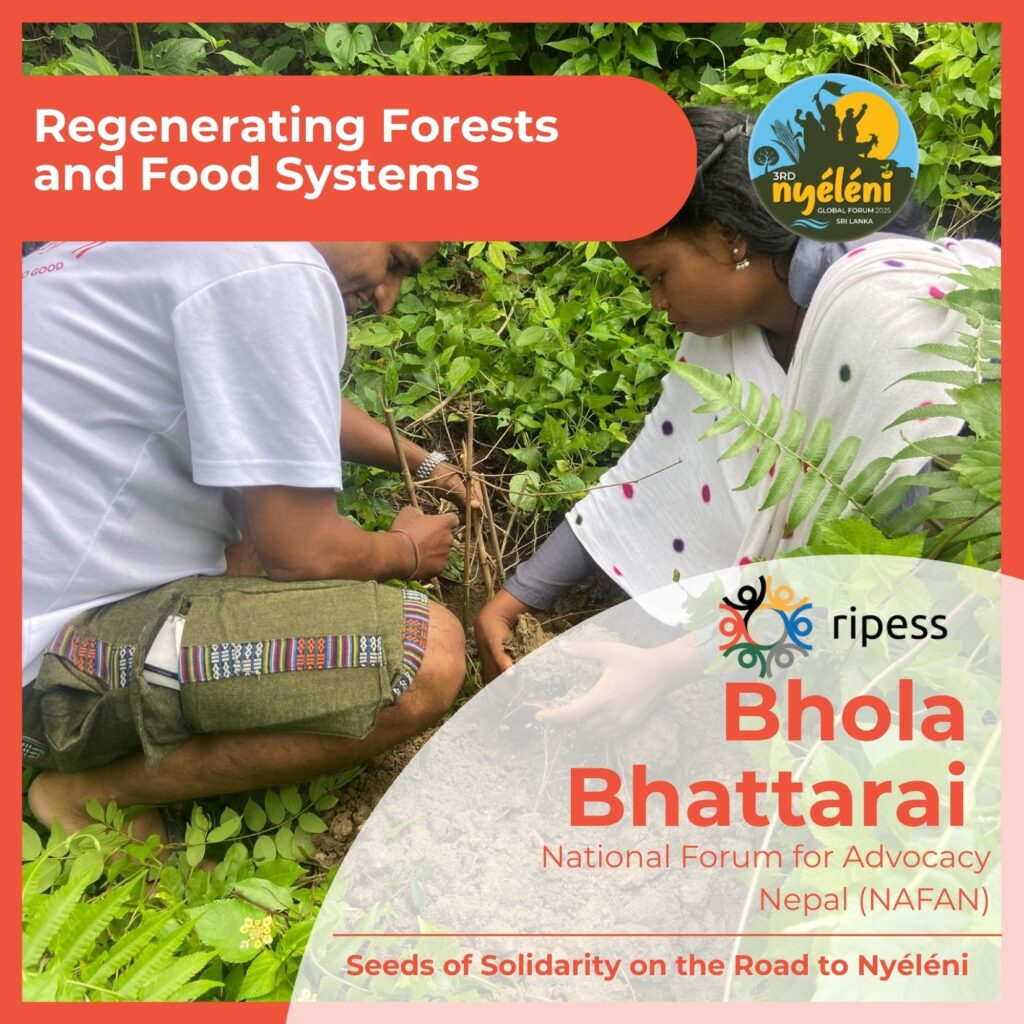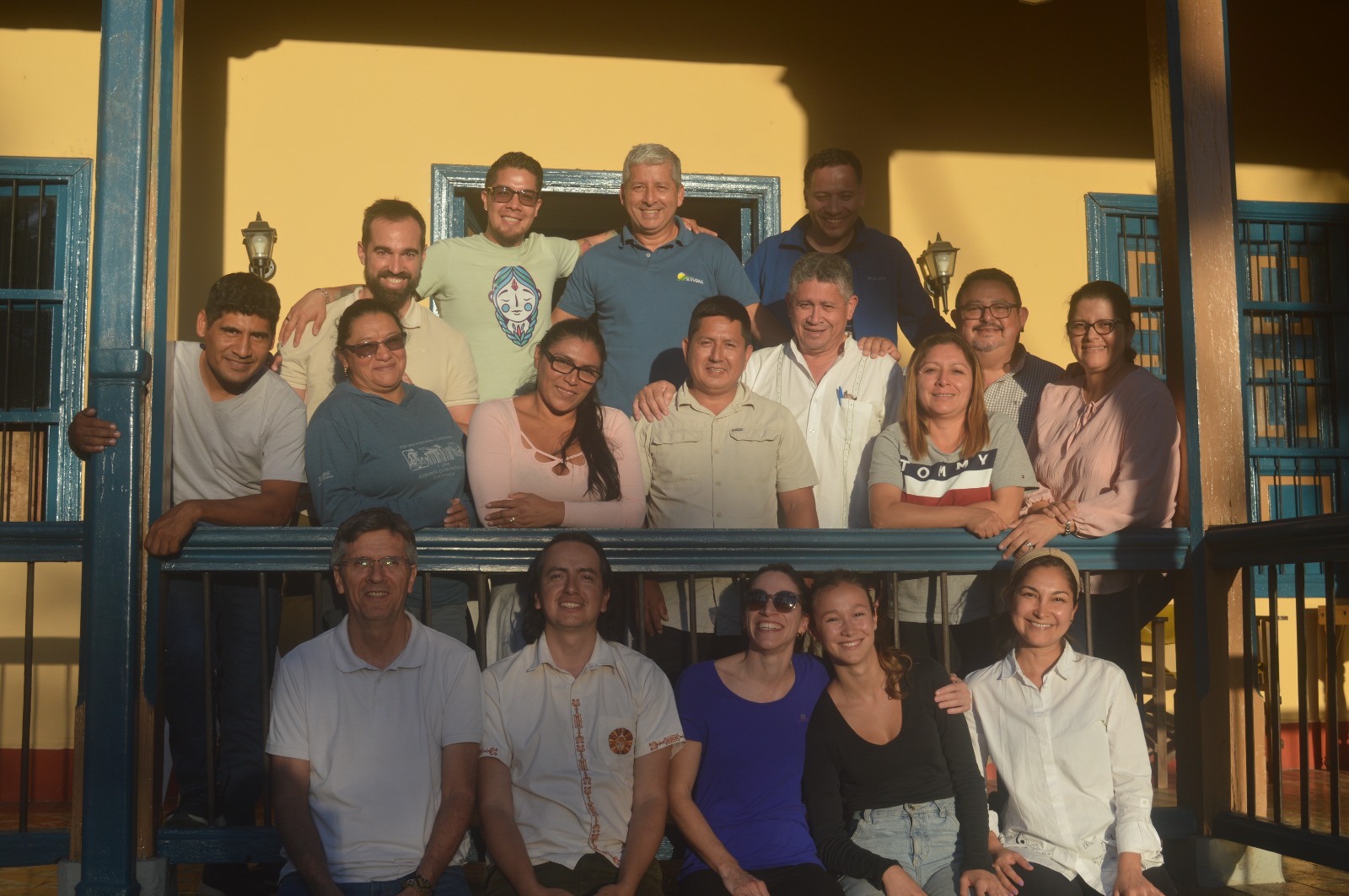
From the hilltops of central Nepal —in the districts of Gorkha, Dhading, Makawanpur and Chitawan— Bhola Bhattarai, from the National Forum for Advocacy Nepal (NAFAN), brings with him the strength and experience of the Chepang Indigenous People, whose semi-nomadic way of life has long been deeply connected to forest ecosystems.
In these communities, women play a central role in regenerating forests, food systems, and community life. Combining ancestral wisdom with new rights-based opportunities, they keep alive practices such as bamboo basket weaving, preparing traditional foods, and cultivating forgotten root crops. In doing so, they strengthen food sovereignty, preserve cultural identity, and overcome poverty.
The challenges are profound. Geographical inequalities intensify exclusion, especially for women and girls. Many villages lack basic services, healthcare is remote, women often give birth before the age of 20, and more than 90% of settlements in the Chure and Mahabharat ranges are at risk of landslides and erosion.
Here, the Social and Solidarity Economy (SSE) becomes a path of resilience. Together with the Raksirang Rural Municipality and local community organisations, a community-owned market was created to sell agricultural and forest products. This space not only supports local incomes, but also symbolises community sovereignty and cultural recognition.
Bhola highlights that real change emerges from communities themselves: when women are empowered, Indigenous wisdom is honoured, and social justice is woven into every action.
At the Nyéléni Forum, Bhola brings stories, photo testimonies and lessons learned, but also the challenges still ahead. His message is clear: regenerating food systems cannot be separated from the dignity of Indigenous Peoples nor from the leadership of women.



